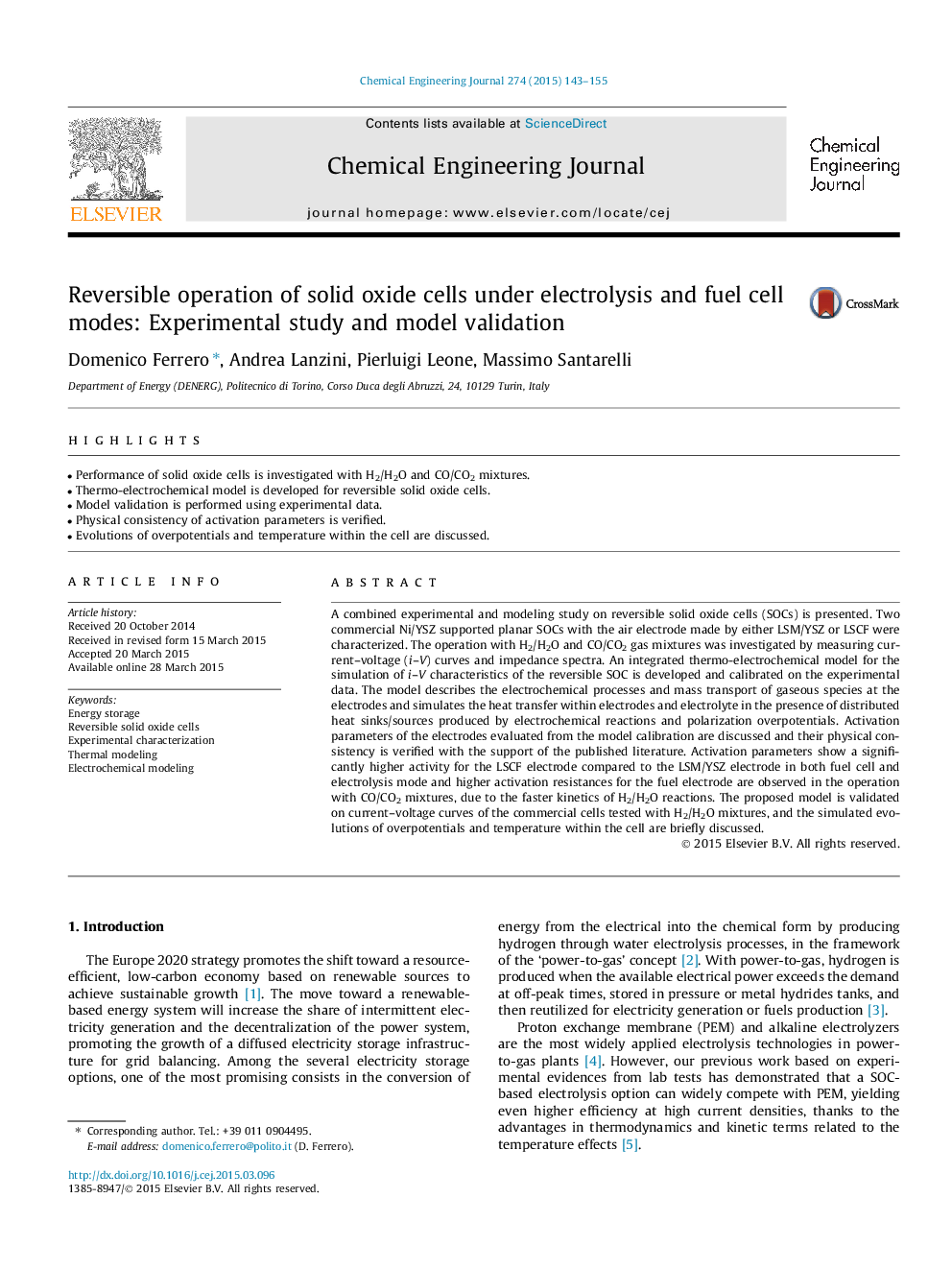| Article ID | Journal | Published Year | Pages | File Type |
|---|---|---|---|---|
| 146391 | Chemical Engineering Journal | 2015 | 13 Pages |
•Performance of solid oxide cells is investigated with H2/H2O and CO/CO2 mixtures.•Thermo-electrochemical model is developed for reversible solid oxide cells.•Model validation is performed using experimental data.•Physical consistency of activation parameters is verified.•Evolutions of overpotentials and temperature within the cell are discussed.
A combined experimental and modeling study on reversible solid oxide cells (SOCs) is presented. Two commercial Ni/YSZ supported planar SOCs with the air electrode made by either LSM/YSZ or LSCF were characterized. The operation with H2/H2O and CO/CO2 gas mixtures was investigated by measuring current–voltage (i–V) curves and impedance spectra. An integrated thermo-electrochemical model for the simulation of i–V characteristics of the reversible SOC is developed and calibrated on the experimental data. The model describes the electrochemical processes and mass transport of gaseous species at the electrodes and simulates the heat transfer within electrodes and electrolyte in the presence of distributed heat sinks/sources produced by electrochemical reactions and polarization overpotentials. Activation parameters of the electrodes evaluated from the model calibration are discussed and their physical consistency is verified with the support of the published literature. Activation parameters show a significantly higher activity for the LSCF electrode compared to the LSM/YSZ electrode in both fuel cell and electrolysis mode and higher activation resistances for the fuel electrode are observed in the operation with CO/CO2 mixtures, due to the faster kinetics of H2/H2O reactions. The proposed model is validated on current–voltage curves of the commercial cells tested with H2/H2O mixtures, and the simulated evolutions of overpotentials and temperature within the cell are briefly discussed.
